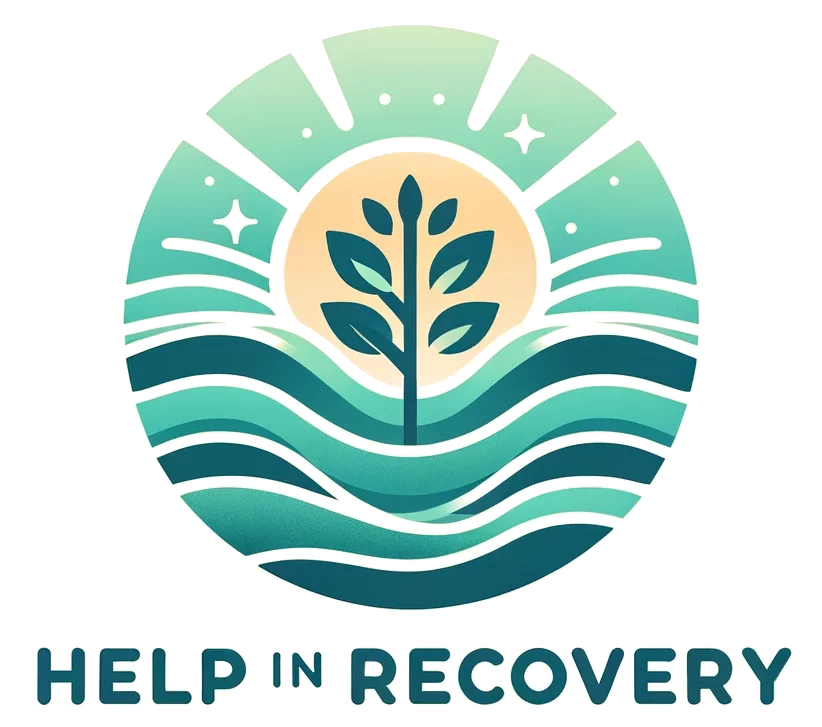Benefits of Support Groups in Recovery: A Guide to Building Strong Networks
Empowering Connections: The Heart of Recovery
Welcome to Help in Recovery, a beacon of hope and transformation in the often-turbulent journey of recovery. Here, we don’t just talk about the challenges of addiction recovery; we delve into the heart of what makes recovery truly successful – the benefits of support groups in recovery. It’s not just about individual struggle; it’s about the collective strength found in recovery support groups.
In these groups, stories unfold, connections are made, and a shared journey begins. Each meeting is more than a gathering; it’s a tapestry of shared experiences, woven together to create a resilient support network. This essay explores the profound benefits these groups offer, illuminating how they become crucial stepping stones on the path to recovery.
| Section | Key Takeaways |
|---|---|
| Empowering Connections: The Heart of Recovery | – Importance of community in recovery. – Shared experiences create a resilient support network. |
| Benefits of Recovery Support Groups | – Offer sense of community, peer support, and structure. – Provide anonymity and safety. – Accessible and diverse. |
| My Personal Takeaways | – Personal realization and reflection on the impact of AA meetings. – Discovery of community understanding. |
| Harnessing Practical Support | – Mutual understanding and coping strategies. – Lifestyle advice and accountability. – Peer wisdom and resources. |
| Role of Community in Support Groups | – Warm, welcoming atmosphere. – Exchange of useful information and guidance. – Building connections and peer-to-peer support. |
| Impact of Peer Support | – Safe space for sharing. – Combatting loneliness. – Mutual understanding and empathy. |
| Power of Personal Connections | – Consistent communication and trust-building. – Mutual encouragement. – Influence on positive change. |
| Overcoming Shame in Recovery Groups | – Challenging stereotypes and misconceptions. – Normalising struggles and reducing shame. |
| Gaining Practical Support and Skills | – Sharing personal experiences. – Advice on social situations. – Enhanced decision-making skills. |
| Building Confidence and Self-Esteem | – Relatability and empathy from shared experiences. – Positive feedback and overcoming anxiety. – Recognition of progress and accountability. |
| The Science Behind Support | – Enhanced recovery rates and reduced relapse incidence. – Improved mental health outcomes. – Psychological and physiological benefits. |
| Expert Opinions on Recovery Support Groups | – Various expert insights on the effectiveness of recovery support groups. |
| Finding the Right Support Groups | – Tips on how to find suitable recovery support groups. |
| Conclusion | – Emphasizing the importance of finding the right support group in the recovery journey. |
Embracing the Benefits of Recovery Support Groups
Recovery support groups offer a multitude of benefits, each contributing significantly to the journey towards sobriety and wellness. Through my own experiences in attending AA meetings, I realised these groups were more than just a forum to share struggles; they were a lifeline to understanding, acceptance, and transformation.
Key Benefits of Recovery Support Groups
- Sense of Community: In AA meetings, I discovered a community of individuals who understood my journey. The shared experiences and collective empathy within these groups created a strong sense of belonging, crucial for sustained recovery.
- Peer Support and Motivation: Listening to others’ recovery stories provided both inspiration and practical insights. These narratives of resilience and triumph over addiction were a source of motivation, showing me the possibilities of a sober life.
- Learning Through Shared Experiences: Every story shared was a learning opportunity. Whether it was strategies to handle cravings or ways to repair relationships, the wisdom in these rooms was invaluable.
- Anonymity and Safety: One of the cornerstones of AA is the principle of anonymity, offering a safe space to share openly without fear of judgment or repercussions. This confidentiality encouraged me to be more open and honest about my struggles.
- Structure and Routine: Regular meetings provided a sense of structure in my life. This routine became an anchor, helping me navigate through the unpredictable waters of early recovery.
- Accessibility and Diversity: With a wide range of meeting times and formats, including online sessions, AA meetings were easily accessible. The diversity in these groups, encompassing various ages, backgrounds, and stages of recovery, enriched the experience, offering a broad perspective on the journey to sobriety.
My Personal Takeaways
My first step into an AA meeting was filled with apprehension, but what I found was a revelation. The people were not the stereotypes I had imagined; they were, in many ways, reflections of myself. This realisation was a profound moment, marking the beginning of my true journey in recovery.
In the following article, explore the transformative impact of community support in recovery, a theme that resonates deeply with my own experiences in AA meetings. Thank you for sharing that insight. Here’s the next section of the article, incorporating your experience with recovery support groups, formatted in Markdown:

Harnessing Practical Support in Recovery Groups
The practical support offered by recovery groups like AA has been a cornerstone of my journey towards sobriety. It’s where I found others who truly understood the nuances of addiction and recovery, fostering a mutual understanding that is both comforting and empowering.
The Practicalities of Support in Recovery Groups
- Mutual Understanding: The greatest strength of these groups lies in the mutual understanding among members. We are all on a similar path, facing alike challenges, which creates a bond that’s both rare and invaluable.
- Sharing Coping Strategies: In these meetings, I’ve learned numerous coping strategies, from handling cravings to dealing with stress without resorting to alcohol. These tips, coming from those who’ve experienced similar struggles, are practical and relatable.
- Lifestyle Advice: Discussions often extend beyond just coping with addiction. They cover various aspects of leading a sober lifestyle, such as balancing work and recovery, managing relationships, and finding joy in sober activities.
- Accountability and Encouragement: The group provides a sense of accountability, which is crucial in recovery. Knowing that others are there to support and encourage me, and vice versa, keeps me focused on my goals.
- Resources and References: Recovery groups are a treasure trove of resources. Be it recommendations for reading materials, contact details for therapists, or information about other support services, the group is always ready to help.
- Peer Wisdom: Sometimes, the most profound advice comes not from experts, but from peers who’ve walked the path before you. Their insights into recovery are grounded in real-life experiences, making them incredibly powerful.
Personal Reflections on Recovery Group Benefits
My involvement in recovery groups has been transformative. It was in these groups where I first realised, I wasn’t alone in my struggles. The camaraderie and shared wisdom have been instrumental in my recovery, providing not just support but a sense of belonging that had been missing from my life.
For further insights into the impact of support systems in recovery, take a look at this article, which echoes the importance of community and mutual support, a key element I found in AA meetings.
The Role of Community in Recovery Support Groups
My first encounter with a recovery support group, particularly an AA meeting, was a revelation. It was heartening to see people eagerly extending their support, sharing their phone numbers, and guiding me towards other beneficial meetings. The literature they provided became a beacon in those early, uncertain days.
Nurturing a Supportive Community
- Welcoming Atmosphere: I was left with a lasting impression of the group members’ warmth and openness. Their readiness to share personal experiences and offer support is the bedrock of these groups.
- Exchange of Useful Information: One of the most valuable aspects of these meetings was exchanging practical information. Whether it was about navigating early sobriety or balancing recovery with daily life, the shared knowledge was beneficial.
- Guidance Beyond Meetings: The support didn’t end with the meetings. Members often suggested additional resources and meetings that could provide further assistance, showing a genuine interest in each other’s recovery journey.
- Literature and Learning: The literature provided by the group, ranging from recovery manuals to personal stories, served as a crucial tool in understanding and dealing with addiction.
- Building Connections: These meetings were more than just a forum for discussion; they were an opportunity to build lasting connections with individuals who empathise with and understand the complexities of recovery.
- Peer-to-Peer Support: The power of peer-to-peer support in these groups cannot be overstated. It’s a space where advice, experiences, and encouragement flow freely, creating a strong support network.
Personal Impact of Recovery Group Community
The community aspect of recovery groups has been a lifeline for me. It’s in these meetings where I found not just support, but a sense of belonging. The kindness and willingness of members to help a newcomer like me navigate the early stages of recovery was both comforting and empowering.
For those interested in exploring the dynamics of community support in recovery further, I recommend reading our detailed article on the subject. It underscores the vital role of a supportive community, similar to what I experienced in my initial AA meetings.
Thank you for sharing that experience. I’ll include it in the next section, focusing on the benefits of having a support group to rely on, especially during challenging times:
Embracing Peer Support in Recovery Groups
During my journey, I discovered the immense value of having a support group to turn to, particularly during moments of mental struggle and loneliness. The availability of a safe space to share my struggles and the opportunity to be around others during evenings and weekends was a crucial aspect of my recovery.
The Impact of Peer Support
- A Safe Space for Sharing: Recovery groups provided a safe environment where I could openly discuss my mental challenges without fear of judgment. This open communication was pivotal in managing difficult moments.
- Combatting Loneliness: The groups served as a sanctuary against loneliness, offering a sense of companionship and belonging, especially during times that could have otherwise been isolating.
- Mutual Understanding and Empathy: The shared experiences within the group fostered a deep sense of empathy and understanding. Knowing that others have faced similar struggles made me feel less alone in my journey.
- Availability of Support: The consistent availability of the group meetings during evenings and weekends meant that I had a reliable place to go to when I needed support the most.
- Learning from Others: Hearing how others dealt with their challenges provided me with new perspectives and strategies to manage my own recovery.
- Building Stronger Connections: Regular interactions with group members helped in building stronger, more meaningful relationships, which played a significant role in my ongoing recovery.
Personal Reflections on Peer Support
The peer support in these groups was more than just a means of coping; it was a vital component of my healing process. In the moments when I struggled mentally or felt lonely, the group was a beacon of hope and understanding. The empathy and shared experiences within the group made me feel seen and understood, providing the strength I needed to continue my recovery journey.
For those looking to delve deeper into the importance of community in recovery, I highly recommend our insightful article on the topic. It highlights how integral a supportive community is in the recovery process, mirroring my own experiences in these support groups.
To add more depth to the next section, could you share an instance where the advice or support from a group member directly influenced a positive change or decision in your recovery? “`
Your input on how the advice or support from a group member directly influenced a positive change or decision in your recovery would greatly enrich the next section. Thank you for sharing that. I’ll integrate your experience into the next section, focusing on the personal connection and support within recovery groups:

The Power of Personal Connections in Recovery Groups
My experience in recovery groups was significantly enhanced by the personal connections I made, especially with one group member who became a cornerstone of my support system. Their consistent check-ins and encouragement were more than just comforting; they were instrumental in my recovery journey.
Building Trust and Support
- Consistent Communication: The regular check-ins from a fellow group member played a vital role in keeping me motivated and focused. Knowing someone was there, genuinely interested in my well-being, provided a sense of accountability and support.
- Sharing and Trust: We shared our stories, building a bond of trust that allowed me to open up about deeper issues that contributed to my struggles with alcohol. This level of honesty was crucial for my healing.
- Mutual Encouragement: The encouragement I received was not one-sided. Our relationship was reciprocal, with both of us supporting and inspiring each other through our respective journeys.
- Understanding and Empathy: Having someone who understood the nuances of my struggle was invaluable. Their empathy and insight often provided the clarity and reassurance I needed during tough times.
- Influence on Positive Change: This connection directly influenced positive changes in my recovery. It gave me the courage to confront and address the root causes of my alcohol dependence.
- A Model for Building Trust: Our interactions served as a model for building other trusting relationships within the group, further enhancing my support network.
Reflecting on Personal Support
The support I received from this group member wasn’t just about daily check-ins; it was about building a relationship founded on mutual understanding and trust. It taught me the importance of having someone to share your journey with, someone who not only listens but also encourages and believes in your ability to overcome challenges.
For those interested in exploring how personal connections can enhance the recovery process, our article offers valuable insights. It underscores the significance of trust and support in recovery groups, mirroring the profound impact these connections had on my own path to sobriety.
Personal Growth and Overcoming Shame in Recovery Groups
Participating in recovery support groups was eye-opening in many ways, especially in challenging my preconceived notions about alcohol use disorder and the types of people affected by it.
Challenging Stereotypes and Misconceptions
- Diverse Backgrounds: I quickly realised that the people in recovery groups were from all walks of life. This diversity was a stark contrast to the stereotypical images often portrayed in media.
- Normalising Struggles: Seeing ‘normal’ people, who just like me were struggling to cope with life, helped in normalising my own struggles with alcohol. It underscored that alcohol use disorder does not discriminate.
- Reducing Shame: Understanding that I was not alone and that my challenges were not unique to me played a significant role in reducing the shame I felt about my alcohol use. It fostered a sense of common humanity and shared experience. I explore this in more detail on this post.
- Breaking Down Barriers: Interacting with a diverse group helped break down the barriers and stigma associated with alcohol use disorder, changing my perspective on what it means to struggle with addiction.
- Personal Reflection: This environment encouraged personal reflection and growth. It allowed me to see my journey not as one of failure but as a path towards resilience and recovery.
- Shared Learning: Learning from others’ experiences and perspectives contributed to my understanding of recovery as a complex, yet hopeful journey.
Embracing a New Perspective
This journey with recovery groups significantly impacted my outlook on recovery and personal growth. It helped me move beyond societal stereotypes and embrace a more compassionate and understanding view of myself and others facing similar challenges.
Gaining Practical Support and Decision-Making Skills in Recovery Groups
My journey through recovery was significantly enhanced by the practical support and decision-making skills I gained from participating in recovery support groups. Here’s how this experience played a crucial role in my path to sobriety.
Practical Support from Group Members
- Sharing Personal Experiences: Group members often shared their own struggles and triumphs, providing relatable and practical advice on navigating recovery.
- Availability and Encouragement: I was fortunate to have group members who were readily available, frequently checking in on me and offering encouragement. This support was vital, especially on challenging days.
- Trust and Story Sharing: Building trust with fellow group members allowed me to share my own issues more openly, which was cathartic and enlightening.
- Advice on Social Situations: When apprehensive about attending a social event with alcohol, group members helped me prepare a fear list and strategies to cope, which was invaluable.
Enhanced Decision-Making Skills
- Learning from Others’ Choices: Hearing about the decisions and consequences experienced by others in the group provided me with a broader perspective on my own choices.
- Debunking Stereotypes: Realising that people from all backgrounds face similar challenges helped dismantle my preconceived notions, leading to more informed and empathetic decision-making.
- Reducing Shame and Stigma: Understanding the commonality of my struggles within the group helped reduce the shame I felt, enabling me to make decisions from a place of self-compassion rather than self-judgment.
- Cultivating Resilience and Self-Efficacy: The group setting fostered a sense of resilience and belief in my ability to make positive changes, directly impacting my decision-making process.
Continuous Learning and Personal Development
Engaging in recovery support groups is an ongoing process of learning and personal development. It’s not just about receiving support but also about developing the skills and confidence to make healthier choices and build a sober life.
Building Confidence and Self-Esteem through Recovery Support Groups
Recovery support groups played an instrumental role in building my confidence and self-esteem, helping me navigate my recovery journey more effectively. Here’s how these groups can foster a sense of self-assuredness and self-worth.
The Role of Mutual Understanding and Shared Experiences
- Relatability and Empathy: In the groups, I found others who had walked similar paths. This shared experience fostered a sense of empathy and understanding, making it easier to open up and share my challenges.
- Normalisation of Struggles: Hearing others speak about their struggles helped normalise my own experiences. It was reassuring to know that I wasn’t alone in my challenges, which significantly boosted my confidence.
- Encouragement and Positive Feedback: Regular encouragement and positive feedback from group members were pivotal. Their support reinforced my belief in my ability to overcome challenges associated with recovery.
Gaining Confidence from Peer Support
- Overcoming Fear and Anxiety: The group provided a safe space to voice my fears and anxieties, and receiving support in return was crucial in overcoming them.
- Building Trust: Developing trust within the group helped me become more open and assertive, contributing to a stronger sense of self-esteem.
- Learning from Success Stories: Listening to success stories within the group was a source of inspiration. It showed me that recovery was possible and that I could also achieve similar success.
Self-Esteem Enhanced by Group Participation
- Recognition of Progress: Acknowledging each other’s progress during meetings was a regular practice. This recognition was a significant morale booster and reinforced my self-worth.
- Role of Accountability: Being held accountable by the group helped me stay committed to my recovery goals, which in turn strengthened my self-esteem as I met each milestone.
- Enhanced Communication Skills: Regular interactions in the group setting improved my communication skills, making me more confident in expressing myself both within and outside the group.
Continuous Journey of Confidence Building
Participation in recovery support groups is a journey that continually fosters confidence and self-esteem. It’s about growing together, supporting each other, and celebrating each step towards recovery.
The Science Behind Support: What Research Tells Us
In the realm of recovery and addiction treatment, support groups have emerged as a cornerstone, backed by an ever-growing body of scientific research. This section delves into what studies tell us about the effectiveness of recovery support groups, highlighting both psychological and physiological impacts.
The Effectiveness of Recovery Support Groups: A Scientific Perspective
- Enhanced Recovery Rates: Research has consistently shown that participation in support groups can lead to higher rates of sustained recovery. Studies indicate that the communal aspect of these groups plays a critical role in this success.
- Reduced Relapse Incidence: A significant benefit of support groups is their role in reducing the likelihood of relapse. The shared experiences and coping strategies learned in these settings provide vital tools for ongoing sobriety.
- Improved Mental Health Outcomes: Support groups offer more than just a platform to discuss addiction; they also contribute to better overall mental health. Participants often report decreased levels of depression and anxiety, attributed to the supportive and empathetic environment.
Psychological and Physiological Impacts of Group Support
- Boosting Self-Efficacy: Engaging with peers in recovery reinforces self-efficacy—the belief in one’s ability to manage one’s addiction. This increased confidence is pivotal for long-term recovery.
- Social Connection and Reduced Isolation: The sense of belonging and community found in support groups combats the isolation often experienced in addiction, fostering a network of mutual support and understanding.
- Stress Reduction through Shared Experience: Sharing experiences and challenges with others who understand can significantly reduce stress levels, a key factor in maintaining sobriety.
- Neurological Benefits: Emerging research suggests that group support can positively affect brain chemistry, particularly in areas related to reward and motivation, further bolstering recovery efforts.
In summary, the science behind support groups in recovery underscores their multifaceted benefits. From enhancing recovery rates and reducing relapse to improving mental health and offering neurological benefits, the role of these groups is both profound and indispensable in the journey to sobriety.
For more expert insights and detailed analyses, consider exploring the extensive research available on the National Institute on Drug Abuse (NIDA) website: NIDA Research on Recovery Support Groups.
10 Tips to Find the Right Support Groups for Recovery
- Research Online: Utilize search engines and dedicated websites like SAMHSA’s Treatment Locator to find support groups in your area.
- Check Local Community Centers: Community facilities often host or have information about support group meetings.
- Consult Healthcare Providers: Ask your doctor or therapist for recommendations on support groups that align with your recovery needs.
- Use Social Media and Forums: Platforms like Facebook or Reddit can be valuable resources to find support groups or online communities.
- Visit Local Clinics and Hospitals: These places often have bulletin boards or resource centres with information on support groups.
- Contact National Organizations: Reach out to organisations like Alcoholics Anonymous (AA) or Narcotics Anonymous (NA) for information about local chapters.
- Ask at Pharmacies: Pharmacists can sometimes provide information on support groups, especially those related to substance abuse recovery.
- Look for Specialised Groups: If you have specific needs (like LGBTQ+ friendly groups), look for groups that cater to these. For instance, The National Institute on Drug Abuse estimates that 1 in every ten veterans has been diagnosed with a substance use disorder. Veterans made significant sacrifices while heroically serving their nation, and many acquired harmful addictions as a result of events they had to face. A Veterans Support Group such as Mesothelioma Hope can help you find the support you need for Veterans suffering from addiction.
- Attend Multiple Groups: Try attending different groups to find the one that feels right for you.
- Ask for Recommendations: Friends or acquaintances who have experienced similar challenges might be able to recommend good support groups.
Conclusion: Embracing Community on Your Recovery Journey
Finding the right support group can be a pivotal step in your recovery journey. These groups provide a sense of community, understanding, and shared experience that is invaluable during the recovery process. While the search for the perfect group may take some time, it’s worth the effort. Each group has its own dynamic, and finding one where you feel comfortable and supported can make a significant difference in your journey towards healing and sobriety. Remember, the strength found in shared experiences and communal support can be a powerful force in overcoming addiction.
Frequently Asked Questions (FAQs)
What are the Advantages of Attending Support Groups?
Attending support groups in the journey of recovery offers numerous advantages:
- Sense of Community and Belonging: Support groups provide a community of individuals who understand and empathize with each other’s journey, creating a strong sense of belonging and mutual support.
- Shared Experiences and Learning: In these groups, members share their experiences and strategies, offering invaluable learning opportunities and insights into coping with addiction and maintaining sobriety.
- Emotional Support and Encouragement: The empathy and encouragement found in support groups can significantly boost morale and motivation, fostering a positive environment for recovery.
- Accountability and Routine: Regular meetings offer a structured routine, which can be crucial in early recovery, providing a sense of stability and accountability.
- Anonymity and Safety: Many groups operate on the principle of anonymity, ensuring a safe and non-judgmental space for individuals to share their experiences and struggles openly.
- Access to Resources: Support groups often provide a variety of resources, including literature, coping strategies, and connections to additional support services.
- Enhanced Self-Esteem and Confidence: Participation in these groups can improve self-esteem and confidence as members recognize their progress and support one another’s journeys.







